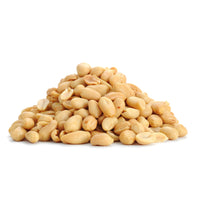Medical guidelines recommend early allergen introduction for babies
Leading health organizations including the American Academy of Pediatrics (AAP), the National Institutes of Health (NIH), and the American Academy of Allergy, Asthma, and Immunology (AAAAI) have updated their guidelines for the early introduction of peanut, and are in the process of developing new guidelines for egg and other allergenic foods.
L.E.A.P STUDY
Learning Early About Peanut Allergy
E.A.T STUDY
Enquiring About Tolerance
P.E.T.I.T STUDY
Prevention of Egg Allergy in High-Risk Infants with Eczema
L.E.A.P STUDY
Learning Early About Peanut Allergy
E.A.T STUDY
Enquiring About Tolerance
P.E.T.I.T STUDY
Prevention of Egg Allergy in High-Risk Infants with Eczema

L.E.A.P STUDY
Learning Early About Peanut Allergy
- Starting at 4 months of age
- Duration of exposure 4 years
- 6g peanut protein per week
Over 600 children between 4 and 11 months of age at high risk for peanut allergy were randomized to either consume or avoid peanut until age 5 in order to compare the incidence of peanut allergy between the two groups.
Learn More

E.A.T STUDY
- Starting at 3 months of age
- Duration of exposure 3 months
- 4g peanut, egg, milk protein per week
1,300 3-month-old babies that represented the general population (no risk factors) were randomized to either consume or avoid peanut, cooked egg, cow's milk, sesame, white fish, and wheat until age 3, in order to measure early introduction's effectiveness on various potential food allergens. Measurement occurred every 3 months.
Learn More

P.E.T.I.T STUDY
Prevention of Egg Allergy in High-Risk Infants with Eczema
- Duration of exposure 6 months
- Starting at 4 months of age
- 50-250mg egg protein per week
147 children between 4 and 5 months of age with atopic dermatitis (eczema) were randomized to either consume or avoid egg for 6 months, in order to determine if step-wise (low to high dose) early allergen introduction is an effective method of lowering the risk of food allergy development.
Learn More

155+ Reviews
































